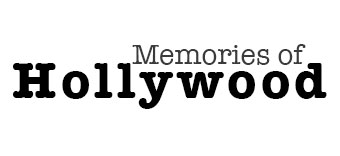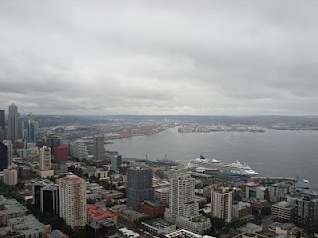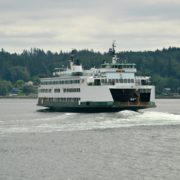Seattle’s a great place to go if you want to access your inner hippie. If you think you know a lot of things but want to give it a test and need a proving ground, I recommend you try the fertile volcanic soil of the Great Northwest. That’s what I did. I’d worked at a little Natural Foods store in New York for four years and thought I was a hotshot, a real Granola. But I got schooled in Seatown, that’s for sure.
I arrived there in late ’99, ready for the second childhood and fresh start that I knew was coming (and was due to me), after all, everything there was so different. I settled in just in time for the WTO protests, Y2K and the earnest debate over the ecological and seismic ramifications of the Kingdome implosion the following March.
Within ten days of my arrival I’d already gotten a job (hired by an Alan Alda lookalike at the PCC, a natural foods co-op) and started to make friends. My new friends Mackenzie and Marty lived in the same building as me, and she also worked at PCC. She called our apartments the “Melrose Place of Seattle” though it lacked a pool and palm trees. It was in fact just an unimaginatively constructed temporary structure for the ’62 World’s Fair that had somehow stayed occupied, on North 85th Street. It went from sheltering the builders of the Space Needle to, by that end of the 20th Century, housing low level drug dealers and of course the occasional PCC employee.
I should get this out of the way right now: it didn’t rain all the time in Seattle. But the Fall and Winter weather my first year there left me in a state of astonishment. The predominant factor was a low ceiling of clouds marked by very late dusks (not that you could see the sun set), owing to what they called the “convergence zone” and the city’s northerly latitude.
But it was always cloudy those first few months. It would not rain so much as mist, so lightly at times that if I was walking around at night, I wouldn’t even realize it unless I looked directly at a streetlamp and saw the little darts of shadow going past. I’d get home and take off my barely dampened jacket. I really couldn’t believe that it was just always cloudy; I counted eleven days once in between sunbreaks (another distinctly Seattle meteorological term). But I quickly learned you didn’t worry about it, and you didn’t even carry an umbrella.
On the upside you didn’t ever have to squint either, an advantage which has probably kept Seattleites faces from becoming lined as they aged. The light in the winter was blue, like an indoor lighting. That light, combined with the low overhang of clouds, made everything look like a movie set (but from what I could tell, unlike the paid professionals, these people were not acting) and gave every resident’s word uttered and action taken an added meaning or gravitas. Perhaps this has contributed to the reputation of self-consciousness that has dogged the typical Seattleite for years.
A month into my new life as a Western Washingtonian the WTO came to town and ignited a storm of protests. There were earnest debates daily in the PCC breakroom about who was going to attend and why (?), and could they get time off (?), and if they couldn’t get time off what did that really say about the co-op (?), and if that said something was not good, shouldn’t our Union do something about it? It wasn’t that I didn’t care; I just didn’t know the details of what was being protested (for or against) and so I’d just listen politely, go home and watch “Dawson’s Creek.”
OK, I guess I didn’t really care, but nobody held that against me, for I was new and didn’t really know the rules yet. And they’d forgive anything if I’d talk in my (fake) New York accent.
The first few days of protests were pretty innocent; riding home on the 5 bus one day I saw Mackenzie and Marty carrying a paper mache ladybug and waiting for the downtown bound bus. A few days later when things started to get a little hairy (and when the so-called “anarchists” took over a building on Denny and broke a bunch of windows at Westlake) the PCC’ers largely stayed away. But several of them had already had their questions answered: yes, they could get time off, but contradictorily, no, management wasn’t really supportive about it (they became The Man after that), and for some reason the Union didn’t want to get involved.
A few of them (us) threatened to quit. I didn’t, I just made jokes about the “anarchists,” as in: (while standing in line at Starbucks) “we have to fight economic oppression, oh, excuse me, I’ll have a tall skinny latte with soy please.” Or that they would ask the police to take their shoes off when they finally busted in on them. These jokes were rooted in my immediately found observation that most Seattleites were unfailingly polite.
A week after I got to town I was on Bell Street late one night and saw two badass punkers (the kind you’d cross the street to avoid) waiting patiently at a crosswalk for the light to change. With no traffic anywhere near.
The protests died down shortly after the WTO fled the now literally crunchy (broken glass) downtown area (the ‘anarchists’ held out a few more months out on Denny), and PCC didn’t actually lose anybody to our own little protest. But the debate about whether we were a “real co-op, like back in the day” was given new life and never died out completely the eight years I lived there.
As soon as the WTO became yesterday’s news there was a new “drama under the drizzle.” PCC staff and customers now had even more time to spend worrying about the date abbreviation clusterfuck of Y2K and how it might throw us all back to the Middle Ages. Though business and banking organizations were hard at work to amend their systems, many people came into our stores (seven of them throughout Seattle) stocking up on food staples and water, lots of water. Used to camping in the summer months in the Rainier foothills or up in the North Cascades, many were resigned to having to now pitch their tents in their own living rooms.
Several people came up to me and told me that Y2K was the impetus they needed to finally decide to go “off the grid” for good. They wanted to go where they couldn’t be “tracked.” Going off the grid was a top five fantasy topic of Seattleites – kind of akin to Cubs fans fantasizing about “this is the year” back east in Chicago.
The night of December 31, 1999 came, and it finally got dark after 10pm or so. I watched them shoot fireworks off the visible top part of the Space Needle (from my kitchen) poking over the top of Queen Anne Hill. I went to bed after leaving a get-together at Mackenzie and Marty’s about 1am, with my lights and computer still working.
 The next morning I walked my usual route down Linden Ave. N to work near Green Lake. Passing Chubby and Tubby’s on Aurora I couldn’t help noticing that nothing seemed amiss except for the parade of people returning cases of WATER to the PCC. Wasn’t water the last thing that was going to go bad? And what if there was an earthquake or Rainier erupted? I didn’t know why they did it, I just had to laugh. I also noticed everybody stayed put on the grid after that too, though that fantasy stayed (stays) alive in the minds of many.
The next morning I walked my usual route down Linden Ave. N to work near Green Lake. Passing Chubby and Tubby’s on Aurora I couldn’t help noticing that nothing seemed amiss except for the parade of people returning cases of WATER to the PCC. Wasn’t water the last thing that was going to go bad? And what if there was an earthquake or Rainier erupted? I didn’t know why they did it, I just had to laugh. I also noticed everybody stayed put on the grid after that too, though that fantasy stayed (stays) alive in the minds of many.
I did work with a hippie couple named Kelly and Rob who largely removed themselves from the grid a little later. I was invited to a baby shower (they were having twins) in March of 2000. Having seen the hand scrawled notes in several bathrooms; I had learned from my multiple visits to friends’ houses all over the North End, that the motto of the city should have been this:
“Seattle: If it’s yellow let it mellow, if it’s brown flush it down.”
And Rob and Kelly were not exceptions in a city and state largely powered by the absolutely abundant supply of hydroelectric power. It was so abundant that Washington was regularly selling some of it (electrical power) to California.
But here’s a good thing about the people of Seattle, hippies especially, they usually did their part.
Hadley, Kristie, Ryan (friends from PCC) and I were invited to the get together. So were Squanch and Elderberry, also from the PCC. It was a cross cultural gathering of hippies and the normally-named. We all brought gifts. Hadley and I got together on a nice Starbucks gift card while Ryan and Kristie bought some Birkenstock knock offs that Rob loved (not made in China). But the presentation of the gift card caused some serious consternation that I admit even I did not see coming. Kelly opened the envelope and peeked inside, showed it to Rob.
He: “Yeah….I don’t know if we want to support a major corporation.”
She: “I know what you mean, and we do like coffee, but gosh, they’re as bad as Monsanto.”
(By this point I’m feeling a little uneasy)
He: “Well, Bill, we really appreciate it though.”
She: “But… they have these new things called Frappucinos, those sure are good.”
He: “Oh yeah, right?! That’s true but, can’t they track us through the use of this card?”
(Now I’m really uneasy and embarrassed)
And on they went. They actually took the debate into the next room for a few minutes before they came back inside and accepted the card. And what a feeling of relief we all felt that that particular loggerhead had been breached.
Shortly after Rob and Kelly had their twins (named Cylis and Trillium, I called them Trylon and Perisphere) they made plans to leave for the Orcas Islands for good. I, and I think, everybody else, lost track of them after that. And that’s pretty much what they wanted, but hopefully there was a Starbucks out there too, because I knew they were looking.
I was three months into my new life, and I wasn’t exactly going off the grid, but I was changing. Instead of eating the crap at Roy Rogers, I now ate the improved crap at Dick’s Burgers and Burgermaster (complete with walk up service to your car) and was even flirting with vegetarianism.
I was also used to the blue light, even enjoyed it, and loved the VERY occasional glimpses I was given of Mts. Rainier or Baker. I loved the bus system, the riders were friendly although they seemed to just want to talk about Edgar Martinez’ double in the 1995 ALDS against the Yankees (I often wore a cap with the interlocking N.Y.).
They also talked (when on that subject) about their love of the Mariners but their disdain for the City’s decision to construct Safeco Field. And the nostalgia they had for the Kingdome, sitting there, a hollowed out husk, waiting for destruction.
With the WTO and Y2K out of the way, Seattle could focus on something that really mattered, the disposal of the Kingdome. There was of course, nostalgia for those friendly concrete confines, but also concern that the planned implosion might cause a good chunk of the Waterfront to sluice into Elliott Bay. As March 26th approached (the Kingdome’s last day) a few doomsdayers came out and predicted just that. The story had it , according to what I learned on the Seattle Underground Tour, that much of the landfill that made up Seattle’s Waterfront was given to the city by San Francisco, in exchange for a lot of timber, used to construct houses. Liquifaction just MIGHT have caused the area around Ye Olde Curiosity Shoppe to fall right in the water.
I showed up on S. Jackson Street (as close as they would let me get) the morning of the 26th to find out for myself. It was sunny for a change but a little chilly. That day was really a precursor to the wonderful summer days I was to have there (but that’s another story), but also to the horror that awaited us all down the road in September, 18 months later.
A few minutes after the scheduled time they set it off, I felt the ground actually tremble as the concrete ribs of the Dome fell in. A slowly advancing cloud of concrete dust greeted us all and we quickly headed towards Yesler Way. The cloud actually blotted out the sun for a few moments. The Waterfront, with its myriad amusements, stayed intact.
I walked up to the Bon Marche and waited for the 5 bus, grinning and shaking concrete dust out of my jacket. A guy on the bus asked me about the implosion and then segued nicely into a discussion about Edgar Martinez and those 1995 M’s.
I went home and after a few days noticed there was nothing worrisome on the horizon for my new City (the Nisqually Quake being almost a year away). This observation coincided with one about the weather. Sunbreaks had given way to stretches of sunniness; the days were getting longer. My new friends may have loved the winter but promised I was in for a treat, drum circles, Pea Patches and Seafair. And lots of Mariners games. In the meantime, I continued my own education on the path to potential (yet never really realized) hippiedom.








